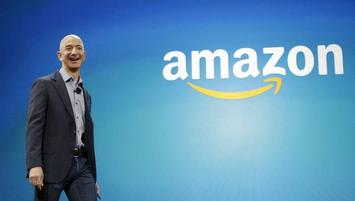
When the late Steve Jobs died in 2011, even protesters from the left-wing Occupy Wall Street movement mourned his passing. Today, it is unlikely that the passing of a tech giant would elicit much in the way of sympathy from progressives or, for that matter, almost anyone else.
As Amazon’s expulsion from New York suggests, the tech oligarchs are gradually morphing from great saviors to widely perceived threats to the republic. Rather than gutsy entrepreneurs, they are seen increasingly as greedy oligopolists whose goal is to place society firmly under their digital control. A majority, notes the Pew Research Center, already feel they need to be more tightly regulated.
The oligarchs have managed to unite both the progressive left and the conservative right against them. The left objects that the tech industry remains almost totally un-unionized and seems to seek to eliminate gainful work for all but a handful. The right sees a threat to their political expression as they strengthen their hold on the means of communications, generally wiping non-progressive views from the screens of their customers.
The progressive critique
Amazon’s New York disaster owed much to the company’s awful record with labor, particularly its warehouses, which have engendered widespread claims of low pay, brutal management practices and an accelerated search to replace workers with robots. In Seattle — where the company controls nearly 20 percent of all class A office space — the expansion has been linked to both the gradual loss of middle- and working-class people as well as rising homelessness.
The University of Washington’s Ali Modarres notes that in sharp contrast to the old tech employers — for example, Boeing — offering unionized blue-collar workers high wages, Amazon relies largely on short-timer 20-somethings. Despite their fulsome embrace of contemporary progressive talking points, oligarchs generally remain opposed to regulation, including anti-trust action, that might slow their control of markets and extraordinary profits.
Rather than inspirational role models, the oligarchs increasingly come off as a cabal using near unlimited access to capital to control markets and crush competition. From a social democratic point of view, they share social attitudes perhaps even more Darwinian than those of earlier moguls. They embrace a future, as researcher Greg Ferenstein suggests, dominated by a handful of cognitive geniuses (like themselves) while everyone else subsists as gig workers dependent on their handouts; “feudalism with better marketing,” as Wired recently suggested.
The right rises up
Some New York conservatives joined progressives in objecting to the $3 billion in goodies for the world’s richest man. But for the most part, right-wing New Yorkers still welcomed the investment, and, given the city’s high taxes and regulations, even condoned giveaways to make up for the brutal tax and regulations imposed on local employers. The problem for the right lays with the oligarchs’ lockstep progressive politics. Firms like Twitter, Microsoft, Google and Facebook generally favor, if not complete censorship, policies that disdain or even remove politically conservative content through “curating.” Meanwhile, open racists and anti-Semites like Louis Farrakhan appear hardly impeded.
As the Jerusalem Post recently noted, control of the media allows people like Jeff Bezos, whose tool, the Washington Post, has gloried in hacking the private foibles of Republicans, to posture as a violated guardian of democracy when his own seamy side is similarly revealed. So outrageous are their power grabs that even some libertarians, such as Instapundit’s Glenn Reynolds, have called for anti-trust action against them.
What is the best policy response?
Given the threat the oligarchs now present to democracy, some strong action, either anti-trust or imposing regulations such as those governing monopolies in electricity, phone and other crucial services, seems critical. They also need to start paying taxes; both before and after Trump, firms like Amazon, Apple, Google and Facebook have paid minimal, and sometimes, no taxes.
Lack of anti-trust enforcement, stemming back to the President Obama years, has allowed these firms to use their vast resources to acquire or stamp out competition. This seems every bit as dangerous, and perhaps more so, than that posed by the oligopolies of the gilded age, when the makers of the modern world — steel, oil, electricity, railroads — spurred actions to keep them from overly dominating the country’s economy and political life.
Yet as we seek to restrain the oligarchy, we should be careful not to impose restrictions that might discourage other entrepreneurial endeavors. This country still needs aggressive, youthful companies to combat large government-backed competitors, notably in China. Leaving the field to the Chinese version of corporate oligarchy promises an even drearier future for both privacy and free speech.
We still need large capital-rich companies to do many necessary things, such as developing space exploration, autonomous vehicles, new medical advances and cost-effective green energy development. We don’t need oligarchs to dominate advertising, control our thinking and manipulate our politics. It’s time for the tech giants to get back to innovating, and be amply rewarded, for innovating in ways that benefit not just of themselves, but society in general.
This piece originally appeared on The Orange County Register.
Joel Kotkin is the Presidential Fellow in Urban Futures at Chapman University, director of the Chapman Center for Demographics and Policy and executive director of the Center for Opportunity Urbanism in Houston, Texas. He is author of eight books and co-editor of the recently released Infinite Suburbia. He also serves as executive director of the widely read website www.newgeography.com and is a regular contributor to Forbes.com, Real Clear Politics, the Daily Beast, City Journal and Southern California News Group.
Photo: Via Moneycontrol.com.












